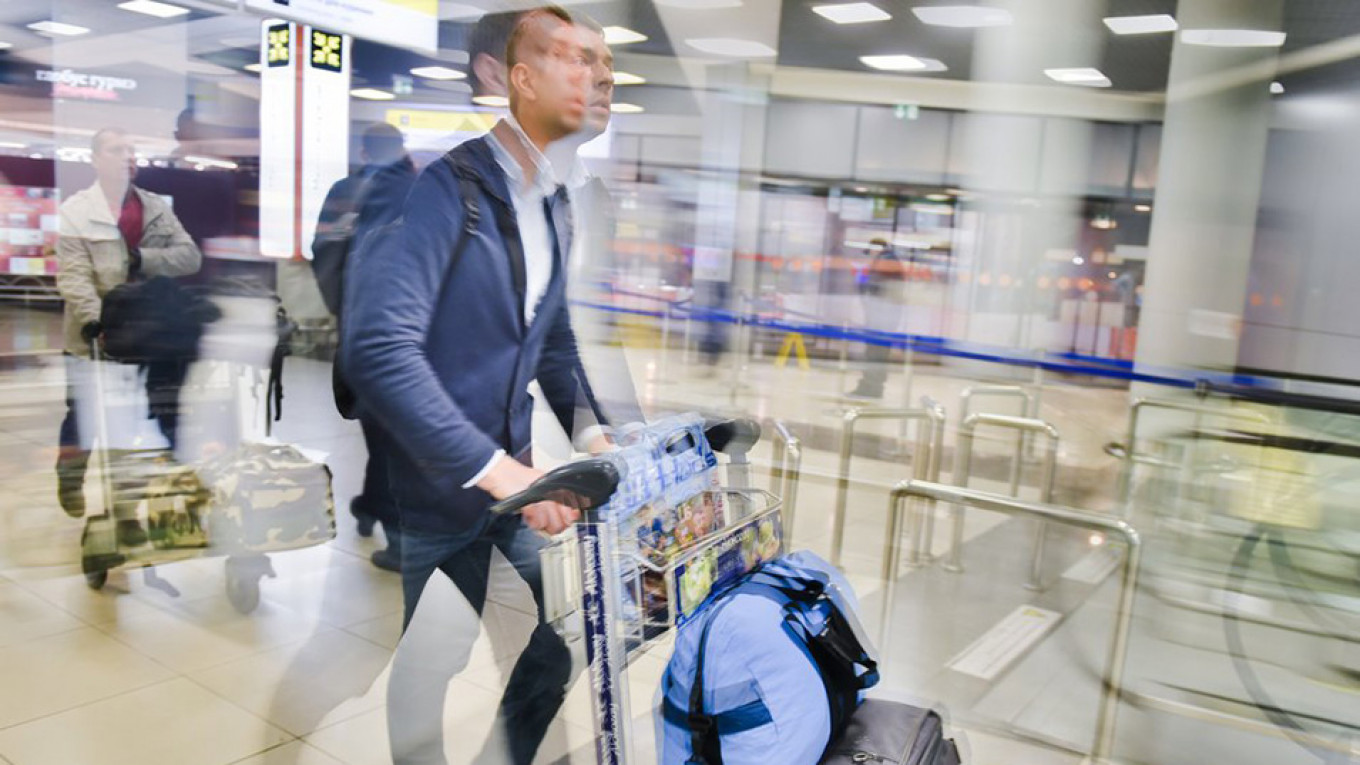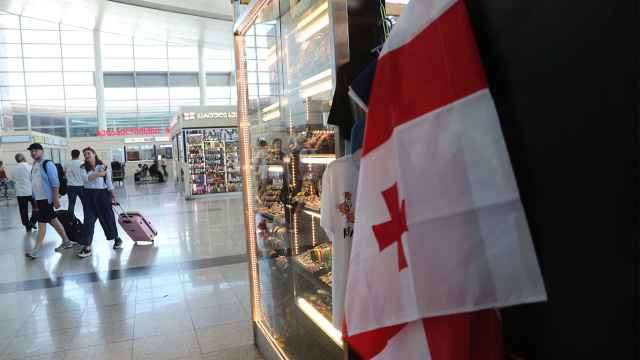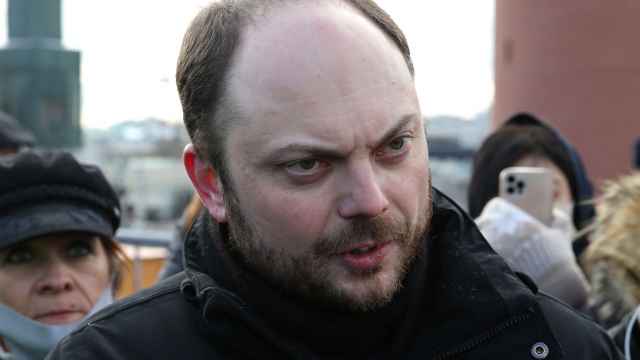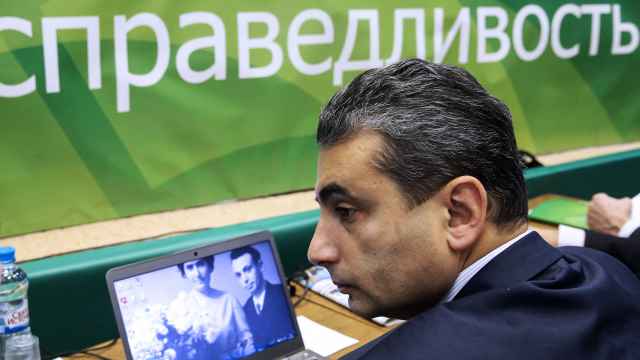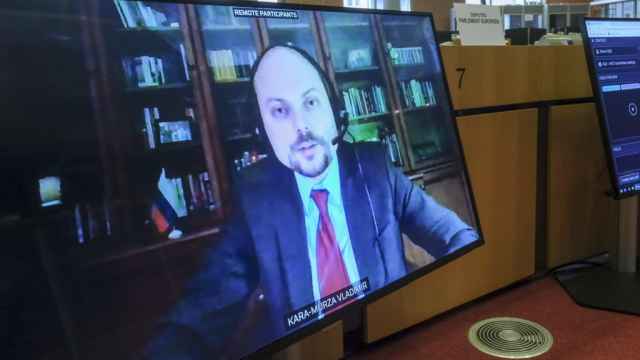In the five years since 2014, the share of those in Russia who consider themselves middle class has shrunk from 60 percent to 47 percent. This is according to a study commissioned by the investment arm of Sberbank, Russia’s largest bank, on the “Ivanov index,” a measure of consumer confidence. “Ivanov,” a common Russian last name, is used to represent a typical middle-class person in Russia.
People who have savings, travel abroad, and frequent restaurants usually think of themselves as middle class, Yaroslav Lissovolik, head of the analytics department at Sberbank CIB, told the newspaper Vedomosti. Those who can only afford basic and immediate necessities place themselves below the imaginary boundary between economic classes; their share grew from 35 percent five years ago to 48 percent today. The fastest the self-identified middle class shrank was between 2015 and 2017, Lissovolik said.
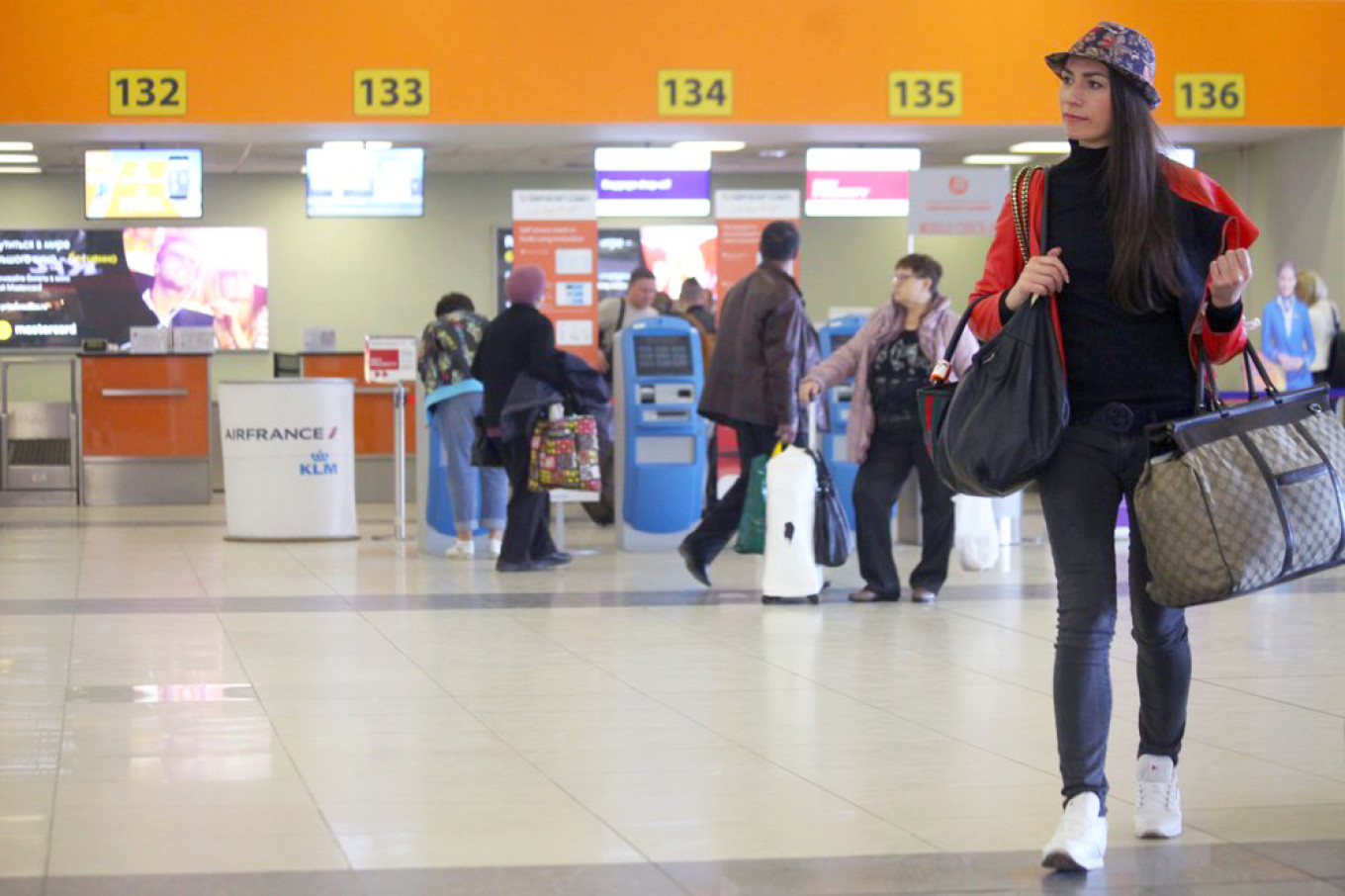
Every major city in Russia saw the share of those who consider themselves “low income” grow significantly over the past five years, often by at least fifteen percentage points, other Sberbank studies show. Russians’ real disposable incomes have been decreasing for five years, even though all Russian pensioners received a special one-time payment of 5,000 rubles in 2017. Russia has not seen a comparably long stretch of impoverishment since the 1990s, the analyst Kirill Tremasov wrote earlier this year.
The incomes dynamic does not tell us everything about Russia’s middle class. There is no consensus as to what exactly the middle class is today as the economic and political reality has been in flux for decades. Today’s middle class is different from the middle class of industrialized societies of the first half of the twentieth century, when the term became common. Income is only part of the story everywhere, but Russia’s case is particularly complicated, owing to the large share of highly urbanized citizens who see themselves as middle class by virtue of their education and employment status
The Institute of Sociology of the Russian Academy of Sciences takes these factors into account and includes in its estimates the quality of the human capital and professional status, along with income levels and self-identification. If only education and professional status are considered, Russia would have a large middle class of “European” proportions, between 60 and 70 percent of the population. But to qualify as middle class according to the Institute of Sociology, one must meet all four criteria. And when all four measures are considered, Russia’s middle class made up 42 percent of the population in 2014, the last year for which data are available.
In 2014, that represented progress. The same Institute of Sociology said in 2011 that only 30 percent of Russians could be described as middle class. However, since 2014 the size of the middle class has most likely shrunk again; it certainly did so with respect to self-identification. It will bounce back, observers say, because self-identification is relative. “Once people realize that everyone is worse off, not just them, they will again feel they are ‘middle class.’ Right now they have not yet reconciled themselves to the fact that the decline is serious and long term,” the analyst Kirill Tremasov says.
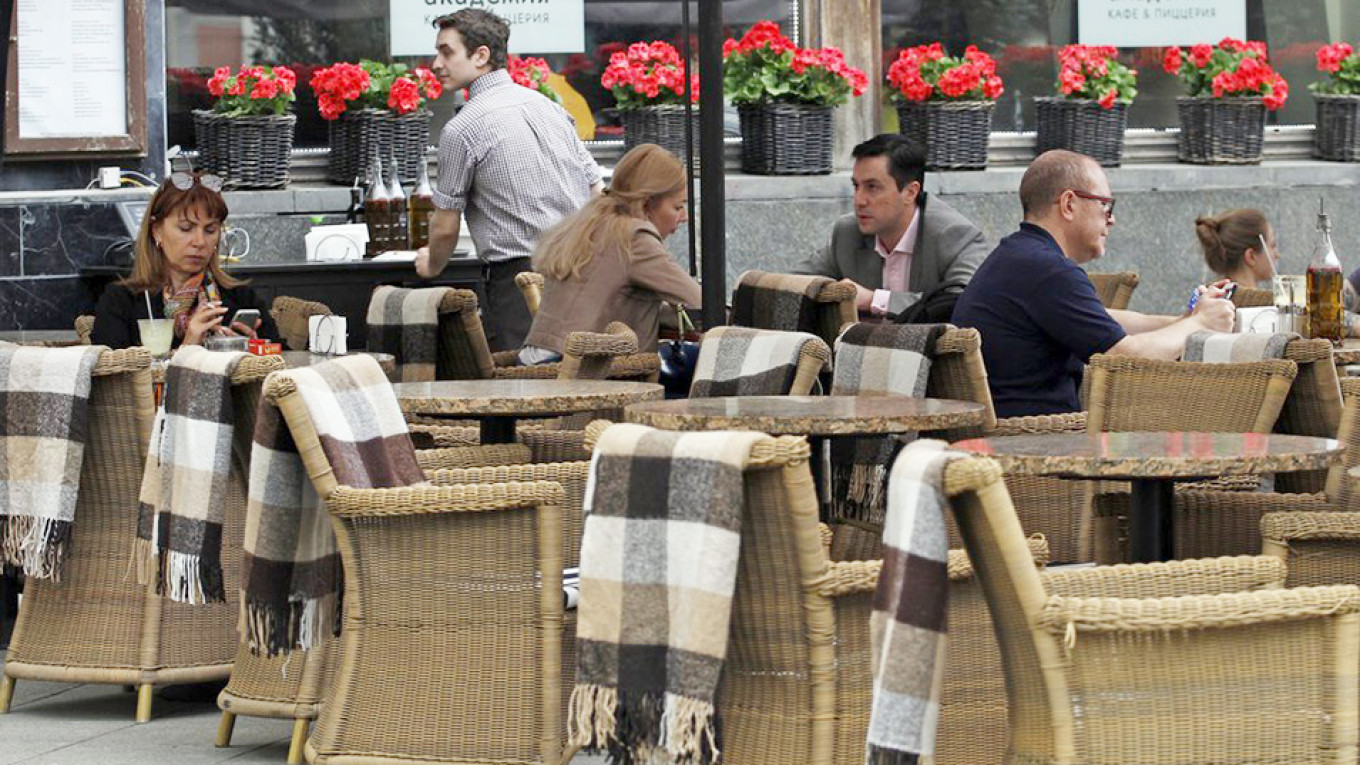
But the decline in incomes and the shrinking middle-income groups are not the whole story. Even members of the Organization for Economic Cooperation and Development, the group of developed market economies, are experiencing a shrinking middle class, though the decline is less dramatic and slower than in Russia. The share of the middle class in OECD countries declined from 64 percent in the 1980s to 61 percent now, a recent OECD study found.
The story of the Russian middle class is different. It is not about the size of the class but about the composition of the group. In Russia, all income groups, and particularly those associated with the middle class, have become critically dependent on the public sector. Pensions, public transfers, and public sector wages account for about half of total incomes in Russia.
According to data from the International Labour Organization, public sector employees account for 40 percent of total employment in Russia, compared to 13 percent in Germany, 15 percent in the United States, 25 percent in Finland, and 31 percent in Saudi Arabia. It is worth noting that the IMF’s estimate of the Russian state’s share in formal employment is 50 percent, higher than the ILO’s 40 percent.
The IMF recently corrected its earlier assessment that state-owned companies were responsible for 70 percent of Russia’s GDP and said that such companies were responsible for only 33 percent of GDP. But this does not change the facts on the ground: both Russia’s working population and the country’s pensioners are heavily dependent on the public sector.
This income dependency has been true for relatively worse-off citizens for a long time. What has changed is that relatively better-off groups of the population have become increasingly dependent on the government budget, World Bank studies show (see especially figure 39 in the report). The share of income from public wages and pensions for better-off groups has grown, while the share of income coming from entrepreneurial activity or property has declined.
The overall picture today is different in critical respects from what we might imagine a middle class to look like. “Russia’s middle class does not resemble the middle class of those industrialized societies of the twentieth century because state bureaucracy and public employees form its nucleus,” Alexander Chepurenko, professor of economic sociology at Moscow’s Higher School of Economics, said in a lecture published by the newspaper Kommersant.
These days Sberbank CIB’s “Mr. Ivanov” is more likely to be a government employee, a teacher, or a pensioner than a shop-owner, a private company employee, or a freelancer.
Another important breakdown underlying the political and economic divisions in today’s Russia concerns inputs to versus benefits drawn from the system. Those in the bottom 60 percent of the income distribution are net beneficiaries of Russia’s current system if in-kind health and education services are included, the World Bank’s Russia Economic Report says. “The top four deciles are net payers to the system, with their tax contributions being greater than the benefits they receive,” World Bank economists conclude.
One has to be careful in directly linking Russian society’s heavy dependence on public wages and pensions with its political sympathies. It is not that people automatically support those who pay them, though the Kremlin may think so. It is what it is, a dependency. It certainly helps Russia’s political managers mobilize support when they need it. But the sincerity of such support will always remain in question.
This article was originally published in the Russia File.
A Message from The Moscow Times:
Dear readers,
We are facing unprecedented challenges. Russia's Prosecutor General's Office has designated The Moscow Times as an "undesirable" organization, criminalizing our work and putting our staff at risk of prosecution. This follows our earlier unjust labeling as a "foreign agent."
These actions are direct attempts to silence independent journalism in Russia. The authorities claim our work "discredits the decisions of the Russian leadership." We see things differently: we strive to provide accurate, unbiased reporting on Russia.
We, the journalists of The Moscow Times, refuse to be silenced. But to continue our work, we need your help.
Your support, no matter how small, makes a world of difference. If you can, please support us monthly starting from just $2. It's quick to set up, and every contribution makes a significant impact.
By supporting The Moscow Times, you're defending open, independent journalism in the face of repression. Thank you for standing with us.
Remind me later.



